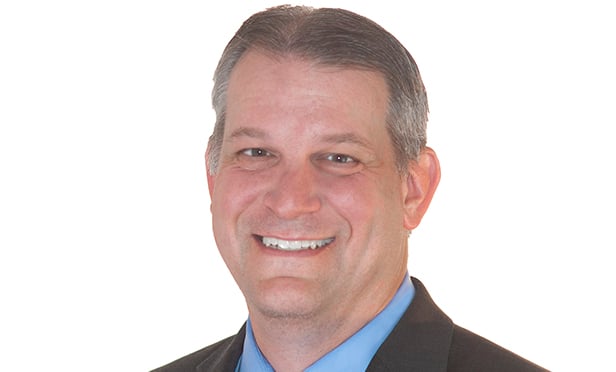(Editor's Note: This article was written two weeks beforethe death of Steve Jobs for Tech Decisions as a tribute towhat Jobs has meant for the business world and for people ingeneral.)
|I was scheduled to speak at a conference in San Francisco twoweeks after September 11, 2001. I half expected it to be cancelled,but it wasn't. It was an interesting flight across the country withabout a dozen people in a 757.
|I got in the evening before the conference was to begin and Iwas supposed to present mid-morning. So I walked over to theMoscone Center a little early to register, pick up my speaker swag,and maybe find some free food for breakfast. I stepped outside fora moment and as I did I heard the familiar wump, wump, wump of anapproaching helicopter. At the same time I noticed a large numberof people lined up outside one of the entrances to theauditorium.
|See also: Lessons I Learned From Steve Jobs
|I asked someone walking past what the big deal was and aftergiving me a very strange look he explained that Steve Jobs wasdelivering the keynote in a few minutes. It was a toss-up betweensnagging that free breakfast and Jobs but fortune dictated that Igo hungry that morning.
|I almost didn't make it into the hall. As I approached, securitywas already turning people away. Just then I spied another, closedentrance marked "Press". Having registered both as a speaker andwith my Tech Decisions press pass I banged on the pressdoor. Security started to wave me away but I held up my presscredentials and I was miraculously escorted to the second rowdirectly in front of the podium.
|Now I really began to panic. I was seated in an area where Iwould have to pay attention and where I couldn't sneak out if myhunger got the better of me. I accepted my fate and settled in forthe duration.
|After about 10 minutes, Jobs was announced and he strolled outto center stage dressed in his usual black mock turtleneck andjeans. A hush fell over the crowd. The woman on my right grabbed mywrist and said to no one in particular, "My god, it is really ishim."
|The woman on my left gasped as she inhaled deeply. The silentcrowd leaped to their feet as one and began a tumultuousapplause. No way could I remain seated without deeplyoffending those around me, so I too stood and offered politeclapping.
|This was amazing. I had been to a lot of rock concerts in smallvenues and seen other industry leaders and politicians. Neverbefore had I witnessed anything like the adoration these people hadfor Steve Jobs. And keep in mind this was when Apple was still justa computer company. The products they offered in 2001 were kind ofcool but not amazingly different from the better Wintel machines.No, this was not about Macintoshes or Lisas, this was about SteveJobs.
|He spoke softly but commanded the stage. Hecame across as very arrogant but not in an offensive way. A fewyears earlier I had watched the guy who had earlier given Jobs theboot deliver a keynote. Now John Sculley was arrogant, but yousensed he didn't have the chops to back up his arrogance. WatchingSculley was like watching some little martinet prancing around thestage and the same thought was on everyone's mind: This is the guythat fired Steve Jobs? Seeing Jobs back on the job commanding theaudience by his very presence was an awesome experience.
|The presentation that day was dead solid boring. Jobs wasessentially shilling for some video editing software by showing howit ran better on a Macintosh than on a "comparable" Windowsmachine. Not a big surprise considering how the software advertizeditself as being optimized for the Macintosh. I was fully preparedto walk away and write 500 words about what a jerk Steve Jobs was.But I didn't.
|In 2001 Apple wasn't all that impressive to the average computernerd. They had some cool stuff and some very cool advertising butthey hadn't really broken any new ground. The general consensus wasthat Apple Computer had made a very bad decision when they decidedearly on not to license their software. After all, Bill Gatescreated the Microsoft money machine when he licensed the softwarethat he had just purchased from Seattle Computer to IBM.
|The cognoscenti "knew" that Jobs' arrogance had forced him intoa making the bad decision to not license Apple operating systems.But was it really a mistake? Bill Gates did make a brilliantdecision, but it was a brilliant business decision. The net effectof licensing MS-DOS and ultimately Windows has created a cash cow,but it has also commoditized Microsoft products.
|And that defines one difference that Steve Jobs has made in theworld of technology. He has always been driven to make productsthat are superior and unique. In order to accomplish that he neededto have complete control over the operating system and the machineit runs on. Microsoft has placed itself in a position of makingsoftware that is generic enough to operate successfully on a broadrange of platforms. There is a big difference between those twophilosophies.
|There was another "truth" about Jobs in the early day. Everyoneknew that Steve Wozniak was the real brains behind Apple and thatJobs was just a front man. After all, when Job's worked for Atarididn't he get Wozniak to design circuit boards for Jobs who thenrepresented them as his own work? Or something like that. Didn'tWozniak actually design and build the Apple I and II? Yet the Wozleft Apple for the final time in 1987—long before the Apple goldenyears.
|There is no doubt that Steve Wozniak is a better programmer andengineer than Steve Jobs. He may even be a better dancer but Idoubt we will ever know for certain. I don't think that his senseof style would permit the other Steve to make an appearance onDancing With the Stars. Yet Jobs, not Wozniak, is and hasbeen the constant thread that runs throughout the history ofApple.
|So what's up with that? Bill Gates and John Sculley are betterbusiness men. Steve Wozniak is smarter. And Steve Jobs just steppeddown as CEO of the company with the highest market capitalizationin the world. The reason he has been able to lead Apple to itspresent stature is because he hasn't focused on the technology orthe bottom line or the marketing. He has focused on creatingsystems that encourage people to interact with technology in a waythat is intellectually, emotionally and spiritually satisfying. OK,I know that sounds a little over the top, but it is the truth.
|Steve Jobs grew up in San Francisco in the 1960's. He was 11 or12 during the "Summer of Love." He briefly attended Reed College,an institute renowned for its brilliant students as well as itswacky academic offerings. Jobs claims a course in calligraphy thathe audited at Reed led to his idea for different fonts on acomputer.
|He travelled to India and dabbled in eastern mysticism. Heexperimented with psychedelics. He was also intensely interested inthe new technologies of personal computing. The spiritual side ofSteve Jobs—that desire to achieve oneness with the universe—istruly what allows him to stand out from other technology leaders.It isn't about the technology; it's about how we can interact withtechnology and how technology is able to improve our experience ofthe world. Growing up in all that hipness allowed him to develop anattitude that disdains a traditional business culture whileembracing success on his own terms.
|Companies that Steve Jobs has created and managed have designedand built at least as many unprofitable devices as they havesuccessful ones. The Lisa was an early PC (1983) that was so farahead of the competition that everyone had to have one.Unfortunately it was also priced well beyond the budget of any geekI knew. After he was forced out of Apple he created NeXT and theNeXT computer—once again a fantastic machine, but notaffordable.
|Even some of his successes were not elegant.The original iMac (introduced in 1998 after his return to Apple)was a strange little self contained plastic computer with a builtin handle. Yet the concept—the excitement of the Internet with thesimplicity of the Macintosh—foreshadowed present day netbooks by adecade. That first iMac was ugly but it was profitable. The lessonslearned from the Lisa and the NeXT computer (which provided thekernel of the operating system) provided the basis for theMacintosh line today.
|Even while driving innovation and excellence in design Jobs hasbeen a savvy enough businessman to generate enough revenue tofinance his innovative products. Back in the day, he promoted AppleII's and Macintosh's as educational machines and during that timeyou could hardly find a PC in a school building. Building on thehigh-end graphics his machines possessed, he forged relationshipswith firms that made graphic, video, and publishing software. Iused to work for a publishing company. Every personal computer inthe building was a PC, unless you worked in a creative area. Thatearned you a high-end Macintosh with a killer monitor.
|In 2001 Apple introduced the iPod. Once again the pundits wereshaking their heads. This time it was, "Jobs can't make any moneyselling Mac's to artists and loyalists so he is going to startselling gadgets." Many thought this was an act of desperation for afailing company. Not only that, the entire iPod concept was flawed.They weren't the first portable media players on the market, theyrequired special software to load media (iTunes), and they usedproprietary media formats. Three reasons for certain failure.
|You know the rest. iTunes has completely turned the recordingindustry on its head, changing the way music is distributed andsold and putting thousands of music stores out of business. Thedownloadable app has transformed the consumer software industry. Noproduct in their market has been able to approach theiPod/iPhone/iPad line of products in popularity. I call those threereasons for success.
|Steve Jobs developed an unerring sense for making electronicdevices simple, efficient, easy to use, and stylish. He is alwaysstriving to make his products better. Consider the first iPad:simple, user friendly, long battery life, thousands of apps,beautifully elegant, etc. But wait, the first iPad is onlybeautiful without its cover—when that sleek aluminum back isrevealed. Yet every iPad 1 I see has a cover that hides that snazzyback. So when Apple released the iPad 2 it was thinner and featureda "smart cover." I know that was Jobs—he couldn't stand to see hissleek design hidden under bulky covers. Steve Jobs has consistentlyand constantly refined his vision. And his vision is what has madeApple what it is today.
|I spend my entire day working on business servers and Windowslaptops and desktops and my Blackberry. When I come home in theevening I look forward to sitting down to my iMac G5 or if I amlucky, sneaking off with my wife's MacBook Air.
|There is a Zen-like quality about interacting with thesemachines. They are elegant, beautifully designed and proportioned,and perform flawlessly. The colors and screen resolution areimmaculate. They even run my favorite Microsoft productivitysoftware. They are fun to use. They are costly but the pleasure ofusing them proves their value.
|An old saying goes something like this: "If you can build abetter mousetrap the world will beat a path to your door." SteveJobs has built a few dozen better mousetraps and the world hassurely beaten a path to Cupertino.
|Footnote:
|The sad truth is I wrote most of this piece on a ThinkPad. Iam not sure if it is just because I am so used to the ergonomicsand keyboard of that machine when I am "working" or what. Yet Iwill do my final proof and email from my Mac. Not sure why but Iwill.
Want to continue reading?
Become a Free PropertyCasualty360 Digital Reader
Your access to unlimited PropertyCasualty360 content isn’t changing.
Once you are an ALM digital member, you’ll receive:
- All PropertyCasualty360.com news coverage, best practices, and in-depth analysis.
- Educational webcasts, resources from industry leaders, and informative newsletters.
- Other award-winning websites including BenefitsPRO.com and ThinkAdvisor.com.
Already have an account? Sign In
© 2024 ALM Global, LLC, All Rights Reserved. Request academic re-use from www.copyright.com. All other uses, submit a request to [email protected]. For more information visit Asset & Logo Licensing.








